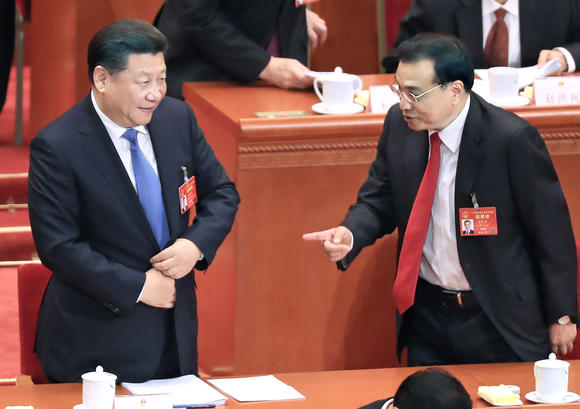This material belongs to: Nikkei Asian Review.
Liaoning posts almost 20% decline in nominal GDP for January-June.
BEIJING/DALIAN, China — Chinese President Xi Jinping‘s campaign against tampered economic data is starting to catch on, with Liaoning Province in the northwest reporting a plunge in nominal gross domestic product in a likely departure from the practices of the past.
Liaoning’s nominal GDP shrank 19.6% on the year in January-June to 1.02 trillion yuan ($154 billion). Meanwhile, its real GDP grew 2.1% and both consumer and wholesale prices have gained. But logic dictates that if prices are on the rise, nominal GDP must be outperforming real GDP.
During the National People’s Congress in March, Xi told representatives from Liaoning that legitimate figures were the most appealing ones. Premier Li Keqiang, who rose through the ranks of the Communist Youth League, once led the province. Xi’s comments were likely meant to curb the league ahead of a party leadership reshuffle this fall.
Liaoning’s data suggests that the province had been tampering with a number of figures, including fiscal revenue. The 20% drop in GDP was likely a result of truthful reporting for January-June in comparison to the inflated figures published previously.
Liaoning has long been rumored to be falsifying its economic data, given its continued growth in real terms despite the downturn in its heavy industries. It reported negative growth for the first time in January-March 2016. But the economy had been facing trouble before then, a local business manager said.
China’s anti-corruption watchdog announced in June that Jilin Province and Inner Mongolia had also been faking data. More provinces could admit to wrongdoing.
The Chinese government passed a new law this month to crack down on inflated economic data. But regional officials still get rated mainly on local GDP and tax revenue. High growth targets set by the party also contribute to the propensity to overstate figures. Structural reforms will be crucial to ensuring accurate reporting.


